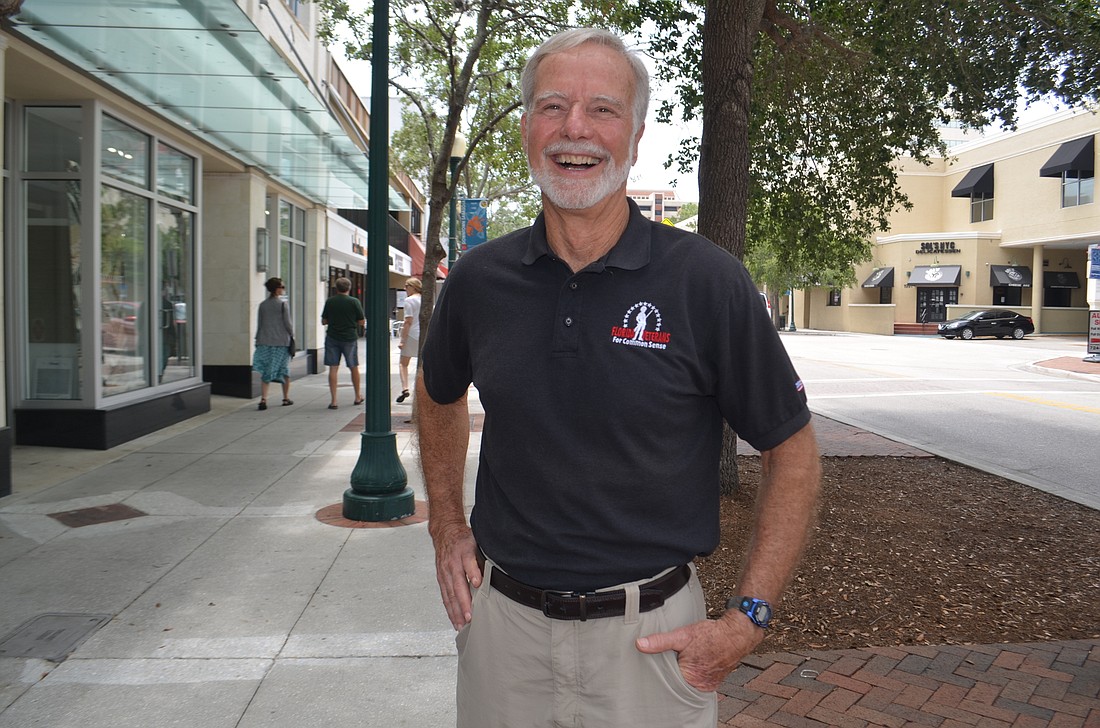- November 23, 2024
-
-
Loading

Loading

Florida Veterans for Common Sense President Gene Jones believes in the importance of speaking out. Jones, a linguist and analyst stationed in Japan in 1964-68, formed the organization with other Vietnam-era veterans to object to the 2003 Iraq invasion. The nonprofit remains vocal about veterans’ issues.
“Understand one thing right up front: Our group — we are not pacifists. Far from it. But we do not believe in unnecessary war.”
“[Our experience] shaped us very personally because many of our friends were either killed or maimed or made sick from unnecessary war. We knew it was going to happen again. What happened was, we have all this backlog of vets that can’t get into [Veterans Affairs]. Vets don’t get the attention they need; vets don’t get the medical care they need; vets end up being homeless; vets end up with PTSD; vets end up poisoned because they’re exposed to all sorts of toxic chemicals. It’s just a waste.”
“Our vice president was a prisoner of war in North Vietnam for 56 months. While he was in prison camp, the North Vietnamese took all the prisoners out every day, and to ruin their morale, they showed them a film of protesters in the United States protesting the Vietnam War. But their propaganda backfired: Instead of lowering the morale of the troops, my friend said he saw that, and it made him so happy to know he lives in a society where people can get out and do that — and he was supposedly defending their rights to do that. He said it was just wonderful to see that.”
“The camaraderie of my fellow veterans — that really gives me motivation every day. What I’ve seen with my fellow veterans — I’ve seen this exploitation. I have friends that were sent to unnecessary war that are sick for the rest of their life. When you see that, it makes you very unhappy. My heart just goes out to them. I want to make sure that doesn’t happen to somebody else. Right now, what I see is that it is happening to other people. That’s not right. We all need to be doing something about that.”
“It’s really fine that people say ‘Thank you for your service,’ but I would like it a lot better if they would say ‘I’m going to work for peace.’”
“We’ve seen [our democracy strengthen] before. We know it can happen. What it takes for it to happen is for people to speak out, to exercise our rights. If you have a right that you don’t exercise, you’re going to lose it. We may be in danger of that.”
“The nice thing about it is [that] our values give us a way to be smart. We just have to live up to them.”
“As patriots, we have a responsibility to speak out. The person that’s unpatriotic is the person that’s not speaking out, even if they disagree with me. I want to hear from them, and I want to talk with them. That’s what a democracy is all about, and that’s what we support. I mean, we have a right of free speech — let’s talk to one another. There’s no way I’m going to call somebody unpatriotic because they disagree with me.”